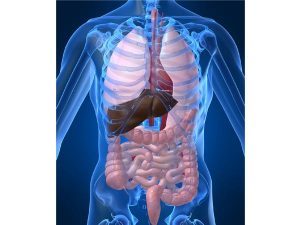- Home
- Editorial
- News
- Practice Guidelines
- Anesthesiology Guidelines
- Cancer Guidelines
- Cardiac Sciences Guidelines
- Critical Care Guidelines
- Dentistry Guidelines
- Dermatology Guidelines
- Diabetes and Endo Guidelines
- Diagnostics Guidelines
- ENT Guidelines
- Featured Practice Guidelines
- Gastroenterology Guidelines
- Geriatrics Guidelines
- Medicine Guidelines
- Nephrology Guidelines
- Neurosciences Guidelines
- Obs and Gynae Guidelines
- Ophthalmology Guidelines
- Orthopaedics Guidelines
- Paediatrics Guidelines
- Psychiatry Guidelines
- Pulmonology Guidelines
- Radiology Guidelines
- Surgery Guidelines
- Urology Guidelines
Diabetes drugs beneficial for patients with NAFLD and NASH

USA: Some diabetes medications (especially pioglitazone) may be beneficial for patients with NAFLD (nonalcoholic fatty liver disease) or NASH (nonalcoholic steatohepatitis), according to a recent review in the BMC journal Systematic Reviews. The finding is consistent with the existing clinical practice guidelines which recommend lifestyle intervention and treatment for comorbidities related to fatty liver disease as first-line treatment.
Fatty liver is associated with type 2 diabetes, obesity, hyperlipidemia, metabolic syndrome, and hypertension. Currently, there are no approved drugs for the treatment of NAFLD or NASH. So, strategies for the management of fatty liver often target these related diseases.
Ian Blazina, and Shelley Selph from Oregon Health & Science University, Portland, USA, sought to determine if any medications approved by the US Food and Drug Administration to treat diabetes help reduce weight and improve steatohepatitis in patients with NAFLD.
For the purpose, they conducted a systematic review that included both published and unpublished studies assessing whether these agents promote weight reduction and steatohepatitis improvement. They searched the online databases which yielded 1591 citations which were further screened. A total of 18 trials in 17 publications were included in the review.
Read Also: Type 2 diabetes increases risk of fatty liver disease, finds study
Key findings of the study include:
- Studies of metformin found no difference from placebo in steatosis, fibrosis, NAFLD activity score, or the resolution of NASH.
- While weight and glucose control were improved with metformin, it did not substantially impact liver disease.
- Studies of pioglitazone in NASH patients found benefits in liver function, liver fat, and NASH resolution, though significant increases in weight may be cause for concern.
- Evidence for other thiazolidinediones was more limited and had somewhat mixed results, but findings were generally consistent with those for pioglitazone: liver fat and function and glucose measures improved, but weight also increased.
- The researchers found some evidence that liraglutide improves liver fat, liver function, and HbA1c and is effective at resolving NASH and reducing weight.
- Exenatide performed less well but also resulted in significant reductions in liver fat and weight.
Read Also: Diabetes Drug no better than placebo at treating nonalcoholic fatty liver disease
"Consistent with existing clinical practice guidelines, which recommend lifestyle intervention and treatment for comorbidities related to fatty liver disease as first-line treatment, trial evidence supports the efficacy of some diabetes drugs (especially pioglitazone) in patients with NAFLD or NASH," wrote the authors. They, however, warn that though weight gain with some diabetes drugs may warrant caution, larger trials are needed to better characterize the efficacy and harms of diabetes pharmacotherapy in these patients.
The study, "Diabetes drugs for nonalcoholic fatty liver disease: a systematic review," is published in the BMC journal Systematic Reviews.

Disclaimer: This site is primarily intended for healthcare professionals. Any content/information on this website does not replace the advice of medical and/or health professionals and should not be construed as medical/diagnostic advice/endorsement or prescription. Use of this site is subject to our terms of use, privacy policy, advertisement policy. © 2020 Minerva Medical Treatment Pvt Ltd